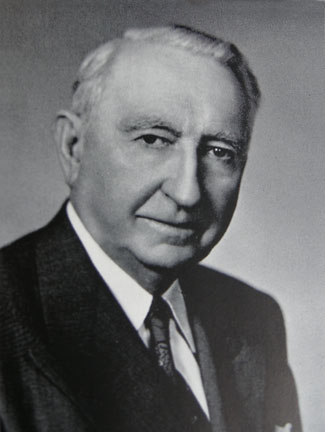Get Today in Masonic History into your Inbox. Sign up today for one of our email lists!
Need an article for your Trestleboard/Newsletter see our Use Policy
Walter Franklin George is Born

Today in Masonic History Walter Franklin George is born in 1878.
Walter Franklin George was an American politician.
George was born on January 29th, 1878 in Preston, Georgia. He attended local public schools and then attended Mercer University where he received his law degree in 1901. He initially entered private practice. In 1917 he served as judge on the Georgia Court of Appeals. The same year he was made an associate justice on the George Supreme Court serving until 1922.
In 1922, George resigned from his position on the Georgia Supreme Court of Georgia to run for the United States Senate. He ran during a special election when the sitting Senator passed away in office. His term was scheduled to begin on November 22nd, 1922 the day after the Senate reconvened. Rather than getting sworn in on the 21st, George allowed the appointed Rebecca Latimer Felton to be sworn to being the term. Despite only serving for a day, because of George's act, Felton became the first woman to serve in the United States Senate. He was reelected to a full term in 1926.
In the 1930s, George, who voted conservatively like many southern Democrats, was less than enthusiastic about Roosevelt's New Deal. Things directly impacting Georgia, he did support like Social Security, the Tennessee Valley Authority which helped parts of Georgia hardest hit by the Depression, the Rural Electrification Administration which brought electricity to rural parts of the country and the Agricultural Adjustment Act which paid farmers subsidies to not plant and to kill off excess livestock. Overall George did support 34 New Deal bills, opposing only 10. This started a long term feud between Roosevelt and George. Although Roosevelt did not technically campaign against George, Roosevelt did encourage the people of Georgia to vote for George's Democratic opponent in the primary. This tactic failed and George continued to be reelected and the rift between George and Roosevelt continued to widen, at least on domestic policy.
In the 1940s George supported almost all of Roosevelt's policies when it came to the war effort and foreign relations.
In the 1950's George came out strongly for racial segregation, like many southern Democrats. He along with 100 other United States Congressmen from southern states singed "The Southern Manifesto" also known as the Declaration of Constitutional Principles in 1956. The document was created in response to the 1954 Supreme Court ruling Brown V. Board of Education which ordered the integration of public schools. Also in 1956 George was up for reelection. He was coming up against Herman Talmadge, whose father had established a political machine in Georgia supporting Talmadge's campaign. Talmadge was also more outspoken against desegregation in the south. Because of these two issues, George decided not to run in the primaries feeling the intense political fight was detrimental to his health.
After resigning from the Senate, President Dwight D. Eisenhower appointed George as special ambassador to the North Atlantic Treaty Organization (NATO). He served there for about six months before becoming seriously ill.
George passed away on August 4th, 1957.
George was a member of Vienna Lodge No. 324 in Vienna, Georgia.
This article provided by Brother Eric C. Steele.

